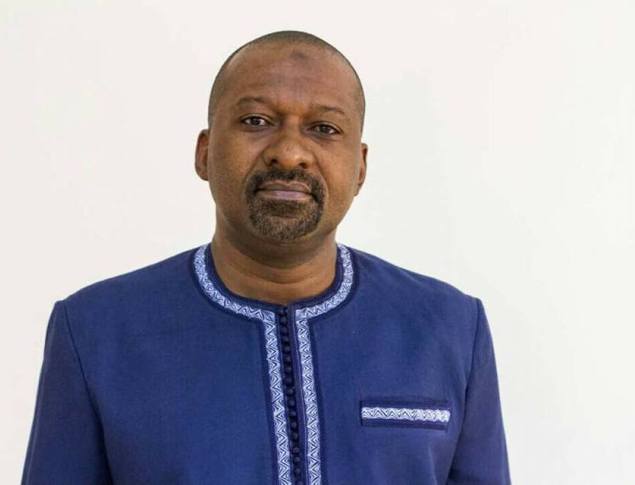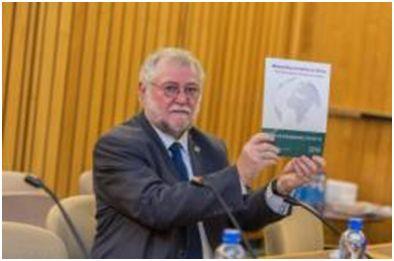Transparent Governance and Sierra Leone´s Middle-Income-Country Aspiration
In most developing countries and emerging economies, the notion of transparent and accountable public institutions is a mere discourse mostly within civil society and good-governance-NGO circles. Although transparency and accountability are a prerequisite for sustained economic growth, in practice, policies that ensure open and transparent governance are either non-existent or are in their infancy in most countries seeking to move up the economic development scale. The manner in which those developing states acquire and exercise their authorities to provide and manage public goods and services (Public Sector Governance) is not very transparent. Consequently, when a national governance system fails to build the relevant infrastructure to ensure an accountable and evaluative citizen-government relationship, corruption and misappropriation not only take their toll, socio-economic growth is significantly dwarfed.
A milestone development which in many ways differs from the shadowy picture painted on transparency and good governance in sub-Saharan Africa, is how the political administration in Sierra Leone has been striving to create the right environment to open up to its citizens – putting policies in place that allow them to hold institutions accountable. With the establishment of the Open Government Initiative (OGI) and now the enactment of the Freedom of Information Act (FOI) and the subsequent passing into law, the people of Sierra Leone will at no point in time have more opportunities to peruse and ask questions regarding government policies and programmes than now. Put simple, the awareness that democracy requires a government that is not only accountable to its citizens but also subject to restraint and oversight by other public agencies is very much a reality within the political leadership in Sierra Leone.
This remarkable development and its prospects for tackling corruption on the one hand, and creating the atmosphere for sustained socio-economic growth on the other, is what I want to dilate on in this piece. It is my conviction that, like justice, “good governance must not only be done, it must be seen to be done” for a developing country to achieve a middle-income rank, a status Sierra Leone is targeting to achieve by 2035, thanks to the forward-thinking leadership of Dr. Ernest Bai Koroma.
In its roadmap to achieving such middle income status, the third generation Poverty Reduction Strategy Paper known widely as the Agenda for Prosperity, the government has clearly spelt out what it needs to achieve to make Sierra Leone an inclusive, green, middle-income country. These include, among others, eradicating hunger; lifting 80% of the population above the poverty line; making housing affordable to all; increasing life expectancy to 70 years; enhancing free and compulsory education for every child; building health care and delivery systems within a 10 kilometre radius of every village; and ensuring an independent and accessible judiciary enjoying the confidence of the people.
These are very important developments that will transform the history of our country for good. However, achieving these is dependent on what I consider the most important benchmark – creating the right environment where citizens can hold governments to account for efficient and effective delivery of public services. The Ernest Koroma-led administration has, since taking over the mantle of leadership in 2007, being cognizant of this fact. It has not only demonstrated the political will but also put policies in place to ensure transparent and accountable government
It started with elected officials declaring their assets when taking up public offices, and giving the Anti-Corruption more powers to prosecute corrupt government officials. When his administration took over the realms of power in 2007, the ACC was a toothless bulldog – one that can bark and not bite. It investigated corruption but could not prosecute those it has investigated. The commission had to rely on the Attorney-General´s office. That situation certainly did not paint a positive picture of a government ready to fight against graft. If the country was serious about fighting a menace that had and was still destroying its structures, the ACC needed to be given those powers to robustly prosecute corruption. The president and his administration took that bold step and since then, the ACC has been working much more freely and independently in the pursuit of corrupt public officials.
In furtherance of its commitment of ensuring that the citizens of Sierra Leone have access to its proceedings and activities, the government then introduced the Open Government Initiative (OGI). The OGI has no doubt, since its introduction, been allowing effective public oversight in the dealings of Ernest Koroma and his government. It did not stop there. The APC government then took its commitment to a global level by applying for membership of the Global Open Government Partnership Initiative. This global partnership provides an international platform for domestic reformers committed to making their governments more open, accountable and responsive to its citizens. Sierra Leone is now among 61 other participating countries where government and civil society are working together to develop and implement reforms.
In 2012, the government launched the first online mining database in West Africa – The Government of Sierra Leone Online Repository System – to increase transparency and accountability in the country’s natural resources sector.
As the Minister of Mines and Mineral Resources Alhaji Minkalu Mansaray said then, the repository system will continue to help “stamp out all malpractice in terms of licensing, financial management and general information pertaining to the mining sector.”
Again, this development is extraordinary in the political history of the African continent. It demonstrates the sheer determination of a government that is determined to break the barriers of bad governance and inept administrative structures that have been plaguing Sierra Leone’s rich mining sector.
Furthermore, another imperative progress was the passage of the Freedom of Information (FOI) law by the Parliament of Sierra Leone, a bill that has languished in that policy making house since 2003. This is an additional step in ensuring greater government transparency, the rule of law and human rights. It could as well be viewed as an international step forward because Freedom of information is recognized as an essential element of the right to freedom of expression in the Universal Declaration of Human Rights, the International Covenant on Civil and Political Rights, the African Charter on Human and Peoples’ Rights and other international instruments.
The examples highlighted here are among several other policies being introduced by the present administration in Sierra Leone, including its policy makers, to make the work of the government open to its citizens. I am very much convinced that this is a pathway that will certainly lead Sierra Leone to its ambition of becoming a middle income country.
Stay with Sierra Express Media, for your trusted place in news!
© 2013, https:. All rights reserved.





